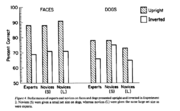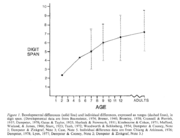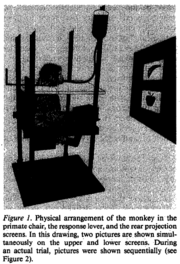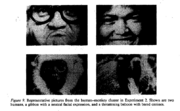心理實驗法第十七講:如何撰寫報告
出自KMU Wiki
(修訂版本間差異)
| 在2013年3月10日 (日) 21:50所做的修訂版本 (編輯) Sakurai (對話 | 貢獻) 小 (心理實驗法第十五講:如何撰寫報告移動到心理實驗法第十六講:如何撰寫報告: 中間插一個) ←上一個 |
在2013年3月10日 (日) 22:18所做的修訂版本 (編輯) (撤銷) Sakurai (對話 | 貢獻) (→Sample (162-167)) 下一個→ |
||
| 第182行: | 第182行: | ||
| ** In press | ** In press | ||
| ** Caption | ** Caption | ||
| + | |||
| + | [http://wiki.kmu.edu.tw/index.php/%E5%BF%83%E7%90%86%E5%AF%A6%E9%A9%97%E6%B3%95 回到心理實驗法] | ||
在2013年3月10日 (日) 22:18所做的修訂版本
目錄 |
APA publication manual
- Manuscript
- Expression of ideas
- Unbiased language
- APA editorial style
- Sample
Writing style
- 以下來自:Sternberg (2003) The psychology companion:
- Easy-to-read fashion
- Good scientific writing is creative
- Clear thinking make clear writing
- 正確的用語
- 不可用
- 大部分的情況
- 利用智力測驗
- 因為
- 多少才算是大部分的情況?
- 用何種智力測驗?
- 不可用
- 在文獻探討
- 邏輯說理過程
- 不必也不能搜尋所有相關的文獻
- 只要列出密切相關的文獻
- 由這些文獻以清楚的邏輯推論出問題所在
- 文法上
- 正確使用標點符號
- 最常見,一段只有一句話。一句超長的句子。
- 在一個句子中不要有太多的想法
- 也常見想要在一句話中描述所有的想法
- 有效的溝通
- Clear thinking
- Skillful writing
- Correct experiment
- 課本p.150 muddied writing的例子
- Reduce bias
- Appropriate level of specificity
- Sensitive to “labels”
- Acknowledge participation
- Sexual orientation
- Racial and ethic identity
- Disabilities
- Age
Parts of manuscript
- Title, author(s), and affiliation
- Abstract
- Introduction
- Method
- Subjects, Apparatus or Materials, Procedure
- Results
- Discussion (summary)
- References
Title
- Title
- 明確且簡短的題目
- XXXX在OOOO的效果
- XXXX代表獨變項
- OOOO代表依變項
- 明確且簡短的題目
Abstract
- 英文120 words之內
- 中文500字內
- Identify
- Problems
- Methods
- Results
Introduction
- Historical review
- 一句話中,不要多過一個研究結果
- 點出
- 重點在那裡
- 假設、實驗設計與問題間的關係
- 與先前研究間關係
- 學術重要性
Method
- 應包含
- Design
- 獨變項、依變項
- Participants
- Apparatus, materials
- Procedure
- Design
Results
- 應包含
- 實驗取得之資料
- 上述資料之統計結果
- 應用文字敘述上述兩項
- 必要時加入圖、表說明
Discussion
- 應包含
- 由結果推論出的
- 與先前研究間的異同
- 與自己假設間的異同
- 對未來的建議
References
- 要符合APA style
- 正文中所提的文獻必定要列出
- 在此列出的文獻,正文中明確指出引用在何處
- 最常犯的錯誤就是列了一堆文獻,但不知正文中何處引用過這些文獻
- 總之,正文與文獻列表要對應
Reporting data
- 要不要用統計?
- 至少會用到描述統計
- 在心理學中統計很重要
- 如果自覺大一統計沒有學好的,請快點自修!
Statistics
- Statistical studies
- Descriptive statistics
- Experimental studies
- Inferential statistics
- 工具
- SAS, SPSS
- Garbage in garbage out
- SAS, SPSS
Bar graphs
- Bar graphs
- Case study p.157
- Experts vs. novices對人臉及狗臉的辨識
- 獨變項:辨識人或狗臉、Experts/novices (small/large sample size)、upright/ inverted
- 依變項:正確率
Histograms
- 與bar graphs之使用時機之不同
- 獨變項:norminal scale: bar graphs
- 獨變項:interval/ ratio scale: histograms
- Case study p.158
- Digit memory span
- Functions
Illustrations
- Case studey p.159
- 介紹特殊之儀器設備,如figure 9.4
- 介紹特殊之材料,如figure 9.5
Sample (162-167)
- 名詞
- Running head
- Capitalized
- Centered
- Indent
- Double space
- Margins
- In press
- Caption




